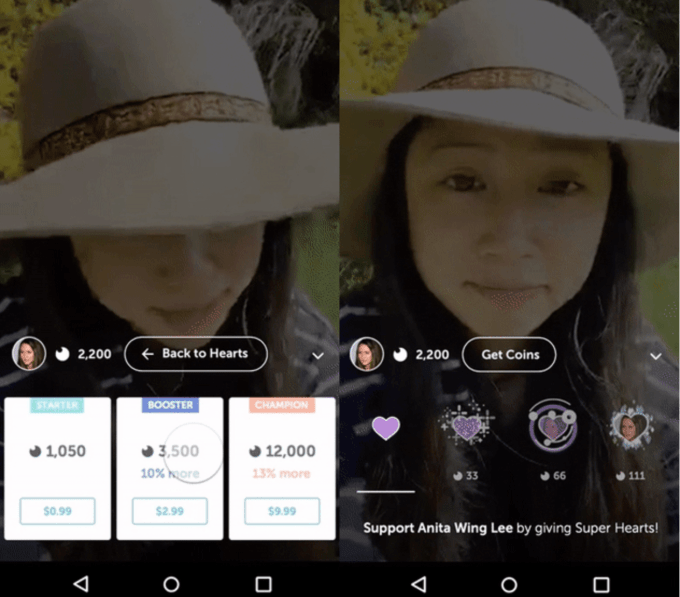Periscope’s new Super Hearts tipping feature that launched yesterday quickly sparked a backlash from the creators it was designed to help earn money.
Broadcasters discovered that if they deleted the replay of one of their live videos before cashing out their tips at the end of the month, they’d lose any tips received during the stream. That meant if a video was overly personal or sensitive, unflattering or a creator otherwise didn’t want the replay on the internet, they’d be forced to forfeit money they’d earned. Twitter already takes a 30 percent cut of tips after the app store’s tax and payment processing fees are removed.
 TechCrunch heard about the issue this morning and asked Twitter for an explanation of why it would need to delete people’s tips if they deleted their replays. Initially a spokesperson merely replied that broadcasters can delete replays after they cash out their tips at the end of the month, and pointed to the broadcaster guidelines.
TechCrunch heard about the issue this morning and asked Twitter for an explanation of why it would need to delete people’s tips if they deleted their replays. Initially a spokesperson merely replied that broadcasters can delete replays after they cash out their tips at the end of the month, and pointed to the broadcaster guidelines.
But after the outrage from broadcasters snowballed, Periscope tweeted that it’s working on a way for broadcasters to hide replays from the public without technically deleting them. Then Periscope followed up with me, noting that the rule against deletion was designed “to ensure all content that’s has been monetized complies with our community guidelines.” It presumably wanted to avoid paying people for tips they earned through nudity or scams, but went too far.
The situation proves how tricky it is to expand from an advertising business model with professional clients to sharing revenue with finicky independent content creators. One broadcaster told TechCrunch that Super Hearts tipping is “a great first step, but realistically this is going to provide pocket change for broadcasters. This isn’t going to be a monetization feature that will allow people to make big bucks, so I think they have to manage expectations with that.”

In-app tipping for live streamers was pioneered and popularized in China, but recently American apps like YouTube and Twitch have adopted the trend. Apps that built creator monetization in from the start are thriving, with Live.me having paid out over $3.5 million to broadcasters in less than a year. Bolting on tipping years after launch means Periscope will have to alter ingrained user behavior and educate people about the confusing design of its buy-virtual-coins-to-buy-hearts-to-send-hearts-that-are-converted-to-stars-that-are-redeemed-for-cash system.
But if Periscope users can get the hang of it, parent company Twitter could adopt the system, too, to simultaneously attract higher-quality content, compensate creators and earn money for itself.
